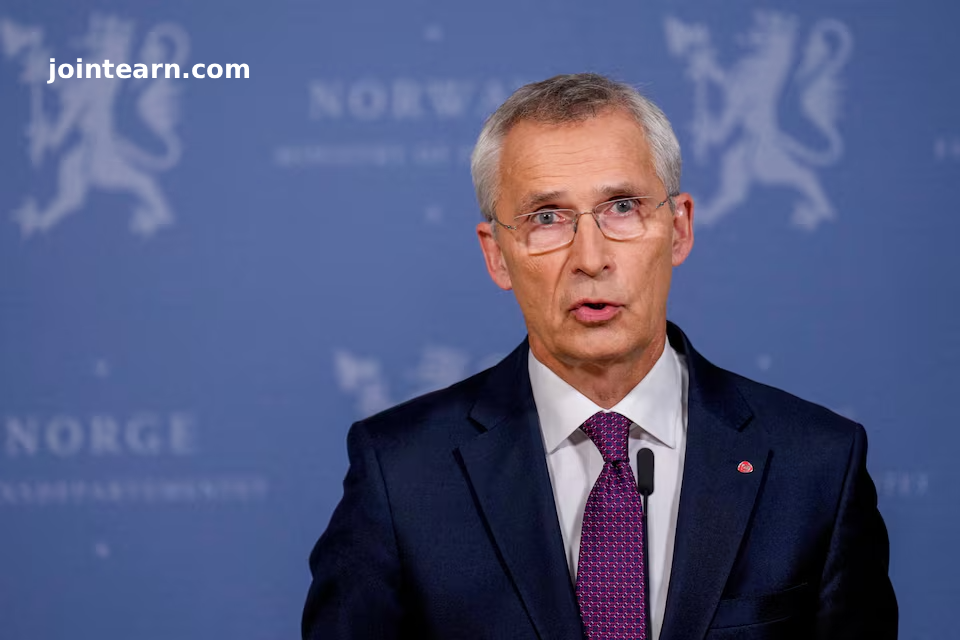
Oslo, November 12, 2025 — Norway will not use its sovereign wealth fund as a financial backstop to guarantee European Union efforts to unlock frozen Russian assets for Ukraine’s reconstruction and defense, Finance Minister Jens Stoltenberg said on Wednesday.
While Norway supports the EU’s broader plan to channel profits or resources from Russian assets to aid Ukraine, Stoltenberg made clear that the government will not provide a $160 billion guarantee through its oil fund, rejecting suggestions from some lawmakers that the nation could underwrite the EU’s initiative on its own.
EU Seeks to Mobilize €130–140 Billion for Ukraine
EU finance ministers are meeting this week to discuss how to raise between €130 billion and €140 billion ($152 billion–$163 billion) to support Ukraine, either through borrowing or by using frozen Russian assets. According to a senior EU official, the preferred path is to tap into the profits generated by Russian funds held in Europe, particularly those managed through the Belgian clearing house Euroclear.
However, Belgium has expressed legal concerns about the plan, fearing that unilateral action could expose the country to lawsuits or claims of expropriation. To overcome this resistance, some Norwegian politicians proposed that the country’s sovereign wealth fund — officially known as the Government Pension Fund Global (GPFG) — could act as a financial guarantor to shield EU member states from potential liabilities.
Stoltenberg: Norway “Will Not Guarantee the Whole Amount”
Speaking to Norway’s public broadcaster NRK during a visit to Brussels, Stoltenberg firmly rejected the proposal.
“There have been some ideas that Norway should guarantee the whole amount — 1.6 trillion Norwegian crowns (about $159 billion) — and that’s not an option,” he said.
Stoltenberg, who previously served as Secretary General of NATO, stressed that Norway is already a major financial supporter of Ukraine, providing both humanitarian and military assistance since Russia’s full-scale invasion in 2022.
“Norway could participate in EU efforts, but we will not provide such guarantees alone,” he added.
Norway’s Oil Fund: The World’s Largest Sovereign Wealth Fund
Norway’s sovereign wealth fund, with assets exceeding $2 trillion, is the largest in the world. It was built from decades of revenue generated by the country’s oil and gas exports and is a cornerstone of Norway’s economic stability.
The fund invests in a diverse global portfolio of stocks, bonds, and real estate, holding shares in over 9,000 companies worldwide. It is equivalent to roughly four times Norway’s annual GDP, giving it significant influence in global financial markets.
Norwegian fiscal policy restricts how much of the fund’s capital can be used domestically. Under the so-called “3% rule,” the government may spend only the expected inflation-adjusted return on the fund each year — around 3% of its total assets — to preserve its long-term sustainability.
This fiscal rule, combined with the fund’s legal and ethical investment mandates, makes it unsuitable for use as a financial guarantee in politically sensitive situations such as the EU’s proposed Ukraine funding mechanism.
Norway’s Continued Support for Ukraine
Although Norway is not a member of the European Union, it has closely aligned its policies with EU sanctions against Russia and remains one of Kyiv’s strongest supporters.
The Norwegian government has already pledged billions in financial and military aid to Ukraine through its multi-year support package, emphasizing solidarity with Western allies while maintaining fiscal responsibility at home.
“Norway stands with Ukraine,” Stoltenberg said. “But we must act within responsible financial and legal frameworks that ensure the long-term strength of our economy.”
Global Financial and Political Context
The debate over using frozen Russian assets has become one of the most contentious issues in European finance. The assets — estimated at more than €200 billion held in Euroclear accounts — represent a potential funding source for Ukraine but also raise complex legal and geopolitical risks.
Analysts warn that any unilateral move to seize or repurpose these funds could trigger retaliation from Moscow or damage confidence in European financial institutions.
For Norway, which maintains a strong reputation for fiscal prudence and ethical investment management, participating in a high-stakes financial guarantee could carry reputational and legal risks far beyond its borders.
Outlook
As discussions continue in Brussels, Norway’s firm stance underscores the delicate balance between European solidarity with Ukraine and the legal constraints of international finance.
While the EU works toward a consensus on how to lawfully and effectively use frozen Russian assets, Norway will remain a supportive but cautious partner, contributing to Ukraine’s recovery through direct aid rather than financial guarantees.


Leave a Reply